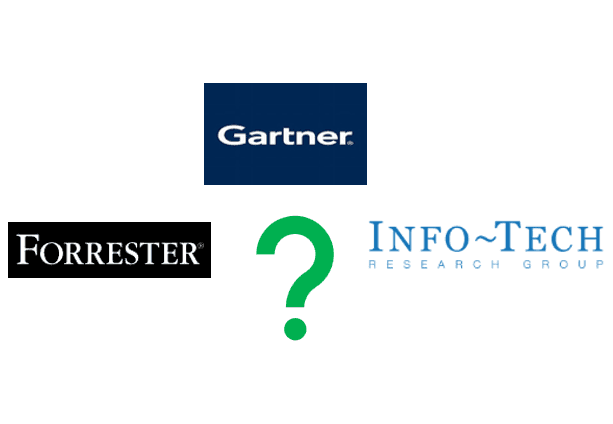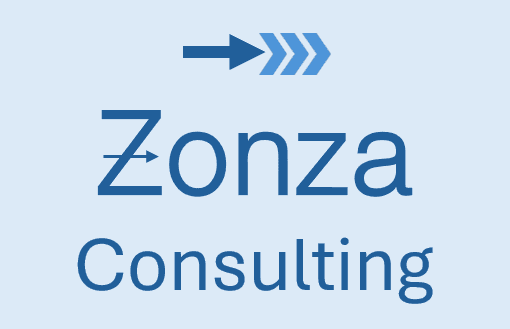Thoughts on Gartner Membership
Thoughts on Gartner Membership
Thoughts on Gartner Membership
Oct 11, 2024
Oct 11, 2024
Oct 11, 2024



Value Proposition
Many organizations engage with Gartner for strategy and technology advice. A typical Gartner services subscription will include access to its portal—which offers a wealth of articles and forums on a range of leading topics—along with a few consulting sessions. The subscriptions often include free or discounted admission to a Gartner conference. The annual baseline fees are typically more than $100k USD, which covers approximately three named users.
But what is the value proposition, and is a Gartner subscription worth the considerable cost? Most organizations seek thought leadership and recommendations on topics such as AI. They also seek access to Gartner's Magic Quadrant evaluations on technology solutions such as ERP and process automation platforms.
The argument for Gartner begins with the following assumptions:
Gartner's services—though expensive—are less costly than dedicated advisory engagements with a top consulting firm.
Gartner have name cachet, and so their recommendations carry weight and can influence technology roadmaps and software evaluations.
Gartner Website and Magic Quadrant
I have worked at three organizations that subscribed to Gartner services. The subscriptions included access to Gartner's website content, which can include helpful insights on a broad array of topics. Some free or low-cost sources can offer the same types of insights: examples include CIO Magazine, YouTube, and learning platforms such as Udemy and Pluralsight. But finding credible and comprehensive information through these sources can be a challenge.
As for Gartner's Magic Quadrant evaluations, they are limited to very high-level summaries and often favor solutions that have the largest market presence and that scale well for Fortune 500 organizations. The favored solutions tend to be the most costly, and the Magic Quadrant evaluations rarely consider industry-specific and geographic factors. For example, SAP S/4 HANA might be a great ERP option for a large, global manufacturing organization—but not for a mid-sized professional services organization. By ignoring these distinctions, Gartner will typically apply an XXL-sized requirements standard and consequently favor solutions that best align with large, global organizations.
Gartner Advisory Services
Several years ago I worked at an organization that engaged with Gartner to advise on our ERP strategy. The primary Gartner consultant had previously worked as a procurement manager for a mid-sized company. The consultant lacked personal experience and insights regarding ERP evaluations and implementations, and so he compensated for these deficits with Gartner bromides and consultant-speak. Of course, this is a very small sample size and our assigned consultant might have been below par for Gartner. Nonetheless, it was an unimpressive experience and one that made me ponder Gartner's value proposition.
Alternatives to Gartner
Good news: Gartner are not the only game in town.
Forrester pioneered the quadrant-based evaluations for which Gartner became famous—though Gartner's superior marketing efforts have established them as the recognized leader. Forrester offer similar content and advisory services as Gartner, but I've not worked directly with Forrester and so cannot comment on their quality of service and pricing.
Info-Tech are another alternative: I have significant experience with them, and they offer a comparable services portfolio that generally costs less than Gartner. Their software and technology platform evaluations are more thorough and industry-specific than Gartner's Magic Quadrant. For example, Info-Tech will compartmentalize their platform evaluations by modules and capabilities—and further distinguish Info-Tech evaluator ratings versus customer feedback ratings. Where applicable—such as with ERP platforms—they publish separate evaluations based on organization size and general industry type (for example: professional services versus manufacturing and distribution). As for Info-Tech's advisory services, during two engagements with them I have been very pleased with their knowledge level, professionalism, and deliverables quality.
Final Thoughts
My Gartner engagement experience has focused on technology roadmaps and platform evaluations related to high dollar potential investments. From this perspective and scale, Gartner services can offer a return on investment and provide valuable thought leadership. But Gartner are not the only game in town, and their competitors offer their own strengths. Therefore, organizations should comparison shop with Forrester and Info-Tech before they commit to an expensive Gartner investment.
What do you think? Please drop us a line if you would like to share your thoughts, experiences, or questions:
Value Proposition
Many organizations engage with Gartner for strategy and technology advice. A typical Gartner services subscription will include access to its portal—which offers a wealth of articles and forums on a range of leading topics—along with a few consulting sessions. The subscriptions often include free or discounted admission to a Gartner conference. The annual baseline fees are typically more than $100k USD, which covers approximately three named users.
But what is the value proposition, and is a Gartner subscription worth the considerable cost? Most organizations seek thought leadership and recommendations on topics such as AI. They also seek access to Gartner's Magic Quadrant evaluations on technology solutions such as ERP and process automation platforms.
The argument for Gartner begins with the following assumptions:
Gartner's services—though expensive—are less costly than dedicated advisory engagements with a top consulting firm.
Gartner have name cachet, and so their recommendations carry weight and can influence technology roadmaps and software evaluations.
Gartner Website and Magic Quadrant
I have worked at three organizations that subscribed to Gartner services. The subscriptions included access to Gartner's website content, which can include helpful insights on a broad array of topics. Some free or low-cost sources can offer the same types of insights: examples include CIO Magazine, YouTube, and learning platforms such as Udemy and Pluralsight. But finding credible and comprehensive information through these sources can be a challenge.
As for Gartner's Magic Quadrant evaluations, they are limited to very high-level summaries and often favor solutions that have the largest market presence and that scale well for Fortune 500 organizations. The favored solutions tend to be the most costly, and the Magic Quadrant evaluations rarely consider industry-specific and geographic factors. For example, SAP S/4 HANA might be a great ERP option for a large, global manufacturing organization—but not for a mid-sized professional services organization. By ignoring these distinctions, Gartner will typically apply an XXL-sized requirements standard and consequently favor solutions that best align with large, global organizations.
Gartner Advisory Services
Several years ago I worked at an organization that engaged with Gartner to advise on our ERP strategy. The primary Gartner consultant had previously worked as a procurement manager for a mid-sized company. The consultant lacked personal experience and insights regarding ERP evaluations and implementations, and so he compensated for these deficits with Gartner bromides and consultant-speak. Of course, this is a very small sample size and our assigned consultant might have been below par for Gartner. Nonetheless, it was an unimpressive experience and one that made me ponder Gartner's value proposition.
Alternatives to Gartner
Good news: Gartner are not the only game in town.
Forrester pioneered the quadrant-based evaluations for which Gartner became famous—though Gartner's superior marketing efforts have established them as the recognized leader. Forrester offer similar content and advisory services as Gartner, but I've not worked directly with Forrester and so cannot comment on their quality of service and pricing.
Info-Tech are another alternative: I have significant experience with them, and they offer a comparable services portfolio that generally costs less than Gartner. Their software and technology platform evaluations are more thorough and industry-specific than Gartner's Magic Quadrant. For example, Info-Tech will compartmentalize their platform evaluations by modules and capabilities—and further distinguish Info-Tech evaluator ratings versus customer feedback ratings. Where applicable—such as with ERP platforms—they publish separate evaluations based on organization size and general industry type (for example: professional services versus manufacturing and distribution). As for Info-Tech's advisory services, during two engagements with them I have been very pleased with their knowledge level, professionalism, and deliverables quality.
Final Thoughts
My Gartner engagement experience has focused on technology roadmaps and platform evaluations related to high dollar potential investments. From this perspective and scale, Gartner services can offer a return on investment and provide valuable thought leadership. But Gartner are not the only game in town, and their competitors offer their own strengths. Therefore, organizations should comparison shop with Forrester and Info-Tech before they commit to an expensive Gartner investment.
What do you think? Please drop us a line if you would like to share your thoughts, experiences, or questions:





